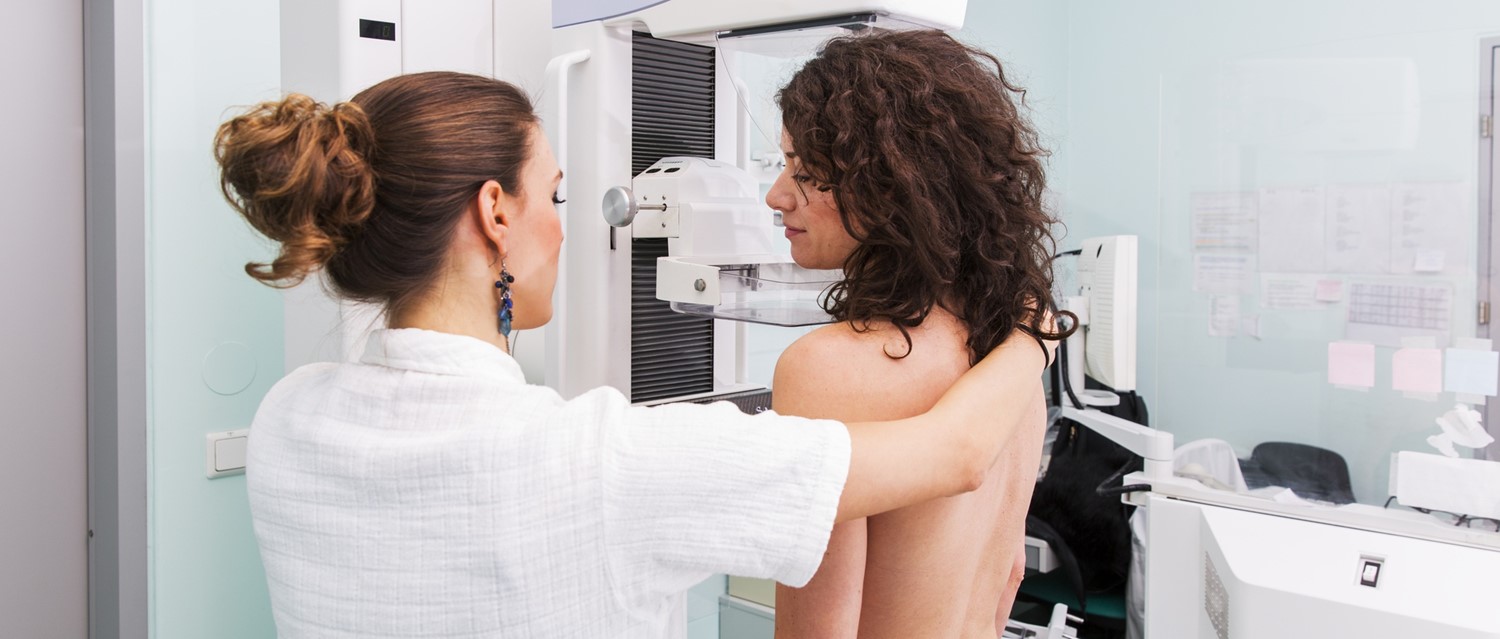
Why we need to talk about breast implant illness
Peer reviewed by Dr Krishna Vakharia, MRCGPAuthored by Amberley DavisOriginally published 30 Sept 2022
Meets Patient’s editorial guidelines
- DownloadDownload
- Share
- Language
- Discussion
Have you heard of breast implant illness? Although not yet recognised as an official medical condition, understanding that this is a possible side-effect of breast implant surgery can help people make more informed decisions, identify the root of their health issues, and improve their chances of recovery.
In this article:
Video picks for Breast health
What is breast implant illness?
"Breast implant illness (BII) is a non-medical term that has been used to describe a wide array of systemic symptoms experienced by some women who have breast implants," explains Marc Pacifico, president of the British Association of Aesthetic Plastic Surgeons (BAAPS).
You may not have heard of breast implant illness, and this is largely because it's not currently recognised as an official medical condition. However, as research seeks to fill in knowledge gaps, many experts believe that this could change.
What causes breast implant illness?
Back to contentsThe simple answer is that experts don't know why some women with breast implants experience these symptoms. This is why breast implant illness has eluded official medical status.
"The symptoms experienced by these women are very real, but we have no medical explanation for them, and their symptoms have not been scientifically linked to their implants," says Pacifico.
Clearly, there is much still to learn, and a huge amount of data is being analysed to establish if breast implant illness is a classifiable disease1.
Pacifico highlights three recent high-level research studies:
One looked at whether the technique in which the breast implant capsule (surrounding scar tissue) was removed made a difference to the relief of their symptoms - the study found no difference between techniques2.
Another investigated whether there were any underlying bacteria or other infections identified that might be contributing to their BII symptoms - there were no infectious causes identified3.
The last study sought to identify if heavy metal poisoning might explain symptoms - the only variations in heavy metal detection (that were all well below recommended levels) could be explained by being higher in women who had a breast augmentation and also had tattoos, were smokers, and had dietary habits that increased heavy metal intake. As such, there was no evidence of heavy metal poisoning4.
Is breast implant illness real?
It's important to remember that a lack of scientific evidence does not mean the symptoms experienced by many women are not real, and plastic surgeons should take all reports of pain, debilitation, and discomfort very seriously. Many diseases undergo a great deal of research before scientific explanations are found.
Do saline implants cause breast implant illness?
Some experts suspect that breast implant illness may be the body's inflammatory or autoimmune reaction to the silicone gel breast implants themselves. One thing we do know is that both saline-filled and silicone-filled implants can trigger symptoms.
Continue reading below
Breast implant illness symptoms
Back to contentsSymptoms of breast implant illness can vary greatly and can have a hugely negative affect on a person's quality of life. Sometimes symptoms are so severe that women are left bed-bound for long periods, and there can be a huge emotional toll.
Symptoms might include:
Symptoms can start soon after surgery or not for many years.
Diagnosing breast implant illness
Back to contentsWithout an identified medical explanation, healthcare professionals must rely on ruling out other health issues such as breast cancer first. Sadly, the lack of understanding around this illness often means that many people suffer without an explanation for their symptoms or are misdiagnosed with other conditions - including mental health problems.
Nonetheless, these symptoms can indicate a wide range of other medical issues5: "It is crucial that you see your GP to exclude other medical causes - these could range from medical diseases, other infections, menopausal reasons, or a host of other causes - that need to be excluded first," Pacifico advises.
Continue reading below
Does breast implant illness go away after removal?
Back to contentsIf you're struggling with breast implant illness, there is hope for recovery. Many have found that removing their implants through surgery cures or significantly eases their symptoms.
However, this doesn't work for everyone, and every surgical procedure carries risks that need to be carefully considered and weighed up. If a scientific cause is found, this could unlock the key to better, more accurate treatment methods in the future.
Why we need to talk about breast implant illness
Back to contentsOngoing research is crucial, but for many women with breast implant illness, it's also important to speak up and raise awareness while this remains an unofficial condition.
Greater awareness of breast implant illness could bring about positive changes in many people's lives, including:
More informed decision-making for those considering breast enlargement surgery - many aren't warned of breast implant illness ahead of surgery.
Less chance of misdiagnosis of symptoms - some people are referred to mental health services several times before breast implant illness is considered.
A better chance of identifying a reason for their symptoms - many symptoms are hugely debilitating and having no reason for them can be a huge source of stress, affecting people's relationships, careers, and more.
The possibility of recovery - while not everyone's symptoms improve or disappear after implant removal, it's important for people to know that this is a possibility.
Does everyone get breast implant illness?
While we have no data that tell us how many people develop breast implant illness, in recent years media coverage and social media groups are doing a lot to raise the profile of this issue. The UK government is also encouraging the public and healthcare professionals to report issues with implants, even if suspected, through the Yellow Card Scheme6.
The more information we collect, the better chance we have of improving care for those in need.
Further reading
Back to contentsPatient picks for Breast health

Women's health
Anatomy of the breast
The medical name for breast is mammary gland. Each breast consists of tissue overlying the chest wall muscles (the pectoral muscles). In women, the breasts are composed principally of specialised tissue (glandular tissue) that produces milk. The remaining part is made up of fatty tissue. In humans, breast tissue begins to enlarge at puberty. This is unlike other primates, where breast tissue only enlarges during milk production.
by Dr Laurence Knott

Women's health
What's causing your breast pain?
Breast pain - or mastalgia - is common in women of all ages and can often be a source of anxiety. We look at causes and management options, and the symptoms you should never ignore.
by Victoria Raw
Continue reading below
Article history
The information on this page is peer reviewed by qualified clinicians.
30 Sept 2022 | Originally published
Authored by:
Amberley DavisPeer reviewed by
Dr Krishna Vakharia, MRCGP

Ask, share, connect.
Browse discussions, ask questions, and share experiences across hundreds of health topics.

Feeling unwell?
Assess your symptoms online for free
Sign up to the Patient newsletter
Your weekly dose of clear, trustworthy health advice - written to help you feel informed, confident and in control.
By subscribing you accept our Privacy Policy. You can unsubscribe at any time. We never sell your data.